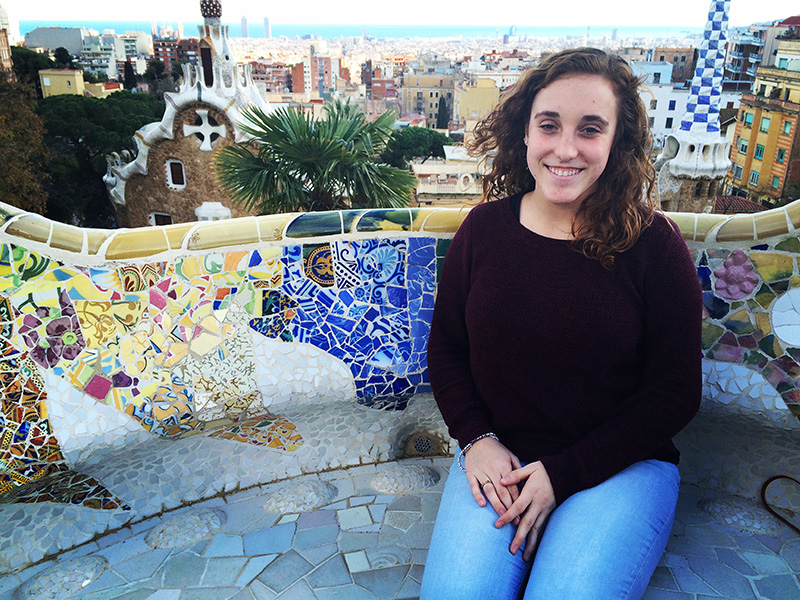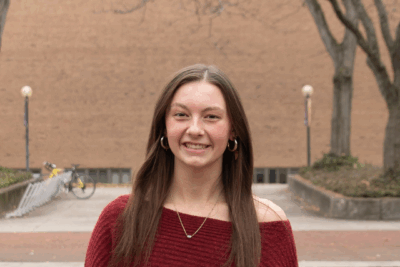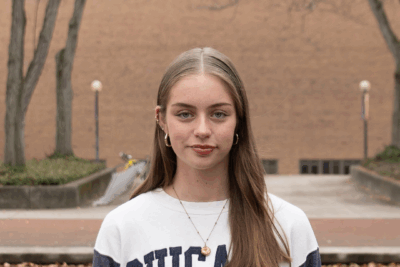As a third-year Spanish and Journalism major, I am required to spend two semesters studying abroad in Spanish speaking countries. After spending last summer in Nicaragua on SST, I made the decision to spend this semester studying in Seville, Spain, at the University of Seville. At first, I was hesitant to leave the comfort of my Goshen community after only being back for five months. But I just couldn’t pass up the opportunity to live in another Spanish speaking country; and I’m so glad I came here. What I’ve discovered thus far is that my SST experience has significantly shaped my experience here in Spain.
In many ways, Spain is nothing like Nicaragua. But in other ways, there are striking similarities. Nicaragua is an extremely impoverished country, with 42.5% of the population in 2009 living below the poverty line (CIA World Factbook). Spain, which is much more consumeristic than Nicaragua, was hit extremely hard by the global economic crisis in 2008. According to the CIA World Factbook, as of 2012, 21% of the population is below the poverty line. Eight years later, Spain is still feeling the impact of the crash, with many buildings left half constructed and unoccupied, as well as a rising unemployment number, over 22%, while Nicaragua’s unemployment is at 6% as of 2009. Evictions are skyrocketing, forcing more and more Spaniards onto the street with nowhere to go and very few governmental resources. This is an injustice that I witness firsthand on a day-to-day basis.To get to and from school, I have to walk down a very long street of high-end clothing and shoe stores. Along this street, I pass the same beggars every day.
A few weeks ago, I had just had a particularly frustrating day of classes and felt especially negative. That day, every step I took down that street hurt my heart. I felt so guilty for being here and studying when many Nicaraguans, and many others around the world, have very few opportunities to receive a decent education in their own town. When I finally made it to the end of the street, I broke down in tears and made my way to my favorite park bench to sit and calm down.
Looking back, I think going directly from summer SST into soccer training and an extremely busy fall semester didn’t allow me to process my Nicaragua experience. Now I’m processing SST in a new way. Now I’m comparing Nicaragua not only to my home in the United States, but also to my current home in Seville.
Before SST in Nicaragua, I was personally unaware of the realities of poverty. Before Nicaragua, I didn’t see my early education as a privilege. Before Nicaragua, I had never truly known the guilt of witnessing blatant injustice and abuse first-hand.
The inequity I observed in Nicaragua makes me more aware of the current inequity in Spain. At the same time, having the opportunity to live in two different countries, as well as my own, in a twelve month period has revealed my privilege to travel, to learn about new people and ideas and to witness firsthand the breadth of injustice across the globe.
After processing my experience with a friend from back home, they gave me some words of advice.
“The goal now is to keep using this knowledge to shape your life and continue to grow and learn and try to be the best version of yourself you can be. The challenge is not to carry all of this tough and confusing knowledge as a weight, but as a tool you can use to your and others’ benefit, as a lens to view the world.”
I could forget about the immensity of my wealth and push aside the feelings of guilt. But I’ve learned that staying in my comfort zone is not the answer to my guilt, and ignoring the injustices in the world won’t solve anything. Instead, I pay more attention to the stories of people around me, and I take every opportunity I can to talk to someone new. I’m also currently working on a research paper about women-led movements for fair housing for my Gender in Spain class.
Take every opportunity you’re given to discover a new place, meet a new person, or understand a new idea.
Every discovery may reveal the many injustices in this world that we are faced with, whether it’s in Diriamba, Nicaragua; Seville, Spain; or cities in the U.S., such as Kansas City, Hesston, and yes, Goshen.
While education is a privilege, it is also a tool for change in the world.


